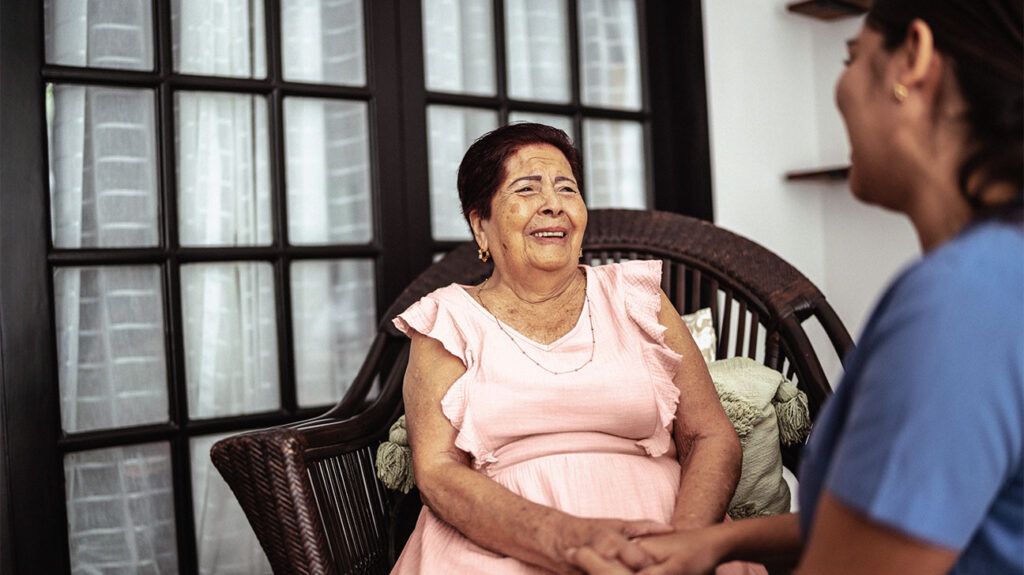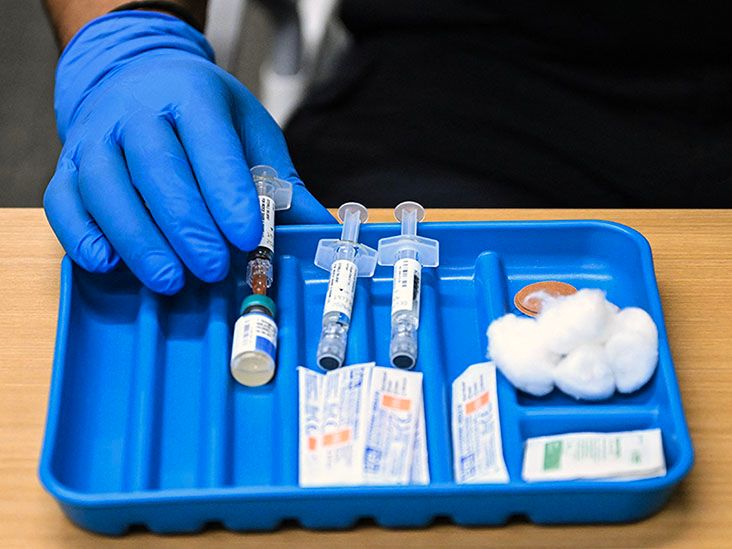Caregivers can help people with Parkinson’s disease manage daily challenges. While this is often rewarding, caregivers may also need support. There are various ways for caregivers to practice self-care and access resources.
Parkinson’s disease is a progressive movement disorder that affects coordination, balance, mobility, and cognitive function. A caregiver can help a person with Parkinson’s manage the challenges of the disease.
Caregiving can be fulfilling but may also feel overwhelming. Caregivers may experience various emotional, mental, and physical difficulties, which can lead to depression, social isolation, and burnout.

The type and level of support that a person with Parkinson’s disease requires can vary depending on their needs and may change from day to day and in the long term.
The role of a caregiver can include:
- Helping with daily living: Caregiving often involves helping people with the disease perform daily activities such as bathing, grooming, and dressing.
- Making home adjustments: Caregivers can help adjust a person’s living space so that they can navigate it more easily.
- Preparing meals: Caregivers may be responsible for regularly providing healthy meals that are easy to chew and swallow and do not interact with medication.
- Managing medication: A caregiver may need to manage a person’s medication, as
some peopleTrusted Source with the disease experience cognitive changes that can make it difficult for them to remember to take medication. - Monitoring symptoms: Parkinson’s disease progresses over time. A caregiver can monitor a person’s symptoms and help them adjust to any changes.
- Organizing medical appointments: Caregivers can help keep track of and accompany a person to medical appointments. They can also help a person navigate health insurance and can advocate for them in healthcare settings.
- Assisting with hobbies and activities: Caregiving might include helping a person pursue new or existing hobbies and activities.
- Providing emotional support: Caregiving can involve providing emotional support in addition to physical support. Caregivers may offer encouragement, reassurance, and empathy.
Key challenges
Although caring for a person with Parkinson’s disease can be fulfilling and rewarding, it
- Mental and emotional difficulties: Ongoing stress, anxiety, and overwhelm related to caregiving may affect a person’s well-being and can eventually lead to depression and burnout.
- Physical difficulties: Caring for a person with Parkinson’s disease can be physically demanding, which could lead to strains and injuries for caregivers.
- Social isolation: Caregivers might not have the time and energy to maintain social activities, or they might feel as if they are constantly “on call.”
- Financial challenges: Some caregivers may not have the financial resources necessary to meet their own needs or the needs of the person they care for. Caregiving may also affect a person’s ability to work.
Finding support can help caregivers manage the emotional, mental, physical, and practical challenges of caring for someone with Parkinson’s disease.
Several types of support are available, including online resources, support groups, financial assistance, and self-care strategies.
The Parkinson’s Foundation provides a list of online resources for caregivers of people with Parkinson’s disease, including:
- Family Caregiver Alliance: This group offers information, educational programs, and various other supportive resources for caregivers.
- National Alliance for Caregiving: This organization provides a community platform and several informational resources to empower and support caregivers.
- American Association of Retired Persons (AARP): The AARP provides information, resources, and an online caregiving community network.
- American Psychological Association (APA): The APA offers several programs, services, and other resources for caregivers by area.
- Caregiver Action Network: This organization offers resources such as a caregiver toolbox and access to caregiver advocates.
Support groups
A person can ask their doctor to recommend a support group or can search online for a virtual or in-person group that suits their needs.
The following organizations can help a person find a support group online or in their local area:
- Parkinson & Movement Disorder Alliance: provides an online database of support groups in different states
- Parkinson’s Foundation: has an online search tool for finding supportive resources by area
- American Parkinson Disease Association: offers a virtual care partner support group and an online community for caregivers and people with Parkinson’s disease
Caregiving can lead to loss of income and financial strain.
According to the Federal Long Term Care Insurance Program, financial resources for caregivers vary across states and cities. Options might include:
- Medicaid care compensation: If a person with Parkinson’s disease has Medicaid, the state may offer a waiver program to pay family caregivers as long as they are eligible.
- Family and Medical Leave Act (FMLA): If a caregiver needs time off from work beyond their allotted paid leave, they may qualify for FMLA benefits.
- Tax deductions: If the person they care for is a dependent, caregivers may be eligible for tax deductions. These can include tax breaks for caregiving contributions and supplies.
- Area Agencies on Aging: A person’s local Area Agency on Aging may provide information on available grants and funding, as well as information on low cost or free respite care, adult day care, and other care assistance options.
Caregiving can be overwhelming and may cause a person to neglect self-care. Managing their own emotional, mental, and physical needs can help caregivers prevent depression and burnout.
Self-care strategies for caregivers can include:
- Managing stress: Identifying triggers and finding ways to manage stress may help prevent caregiver burnout. A person might consider trying stress relief practices such as exercise, deep breathing, journaling, or relaxation techniques.
- Seeking mental health care: Caregivers of people with Parkinson’s disease
commonlyTrusted Source experience symptoms of mental health conditions such as depression and anxiety. A mental health professional may be able to help a person understand and change their thoughts, feelings, and behaviors to improve their mental health. - Reaching out: Sharing feelings with friends and family and accepting their help may ease the strain on a caregiver.
- Maintaining social connections: Caregivers may withdraw from social life and become isolated. A person may want to make a dedicated effort to maintain social connections by regularly communicating with friends and family, planning social activities, or joining social groups or clubs.
- Prioritizing health needs: Attending regular health checkups, eating a nutritious diet, and getting regular physical activity may help reduce the physical and emotional strain of caregiving.
- Seeking outside care: Multiple types of outside care are available for people with Parkinson’s disease. Respite care is a service that offers short-term care to provide a break for caregivers.
Parkinson’s disease is progressive, which means that a person with the disease may need greater levels of support and help over time.
Once the disease reaches an advanced stage, a person may need help with all daily living activities and mobility and may experience cognitive changes such as dementia.
The following strategies may help caregivers adapt to the changing needs of people with Parkinson’s disease.
Getting outside help
As Parkinson’s disease progresses, a person may need more support than a caregiver can provide on their own.
A caregiver might want to learn about and plan for professional help before it becomes necessary.
Multiple in-home care options are available to suit different needs, including:
- personal care aides, who can help with household activities and may perform some routine care
- licensed practical nurses and home health aides, who can perform some basic procedures but work under the supervision of other healthcare professionals
- registered nurses, who can provide skilled care
Planning ahead
Planning for the future care of someone with Parkinson’s disease can help caregivers navigate changes without becoming overwhelmed.
Caring for someone with Parkinson’s may involve planning for the following:
Logistical information
A person may want to organize and file documents that include information about their medical care, financial situation, insurance and property, and family. Gathering and organizing this critical information will mean that it is accessible for administrative purposes or in case of an emergency.
Palliative care
Palliative care aims to support a person’s quality of life from the time of their Parkinson’s disease diagnosis onward. It typically involves a professional healthcare team who can provide support and help a person prepare for their future with the disease.
Hospice care
Hospice care provides symptom relief, comfort, and dignity as the end of life approaches.
End-of-life care
A person with Parkinson’s disease may want to be involved in planning for their end-of-life care. This can involve making decisions for the future regarding medical interventions such as mechanical ventilation and feeding tubes, as well as organizing important documents.
A person may want to seek help from an attorney to create legal documents such as a power of attorney and a will.
Caring for someone with Parkinson’s disease can feel overwhelming and may lead to stress, depression, and burnout. Caregivers need to prioritize their own health and well-being too.
Resources such as support groups and financial assistance programs are available to help caregivers manage the mental, emotional, physical, and practical challenges of caregiving.
Self-care strategies such as managing stress, seeking mental health care, and maintaining social relationships can also help people cope with the challenges of caregiving.
If a caregiver can no longer meet the needs of the person they are caring for, outside help is available. Some organizations can provide financial assistance or low cost options to assist with professional care.


